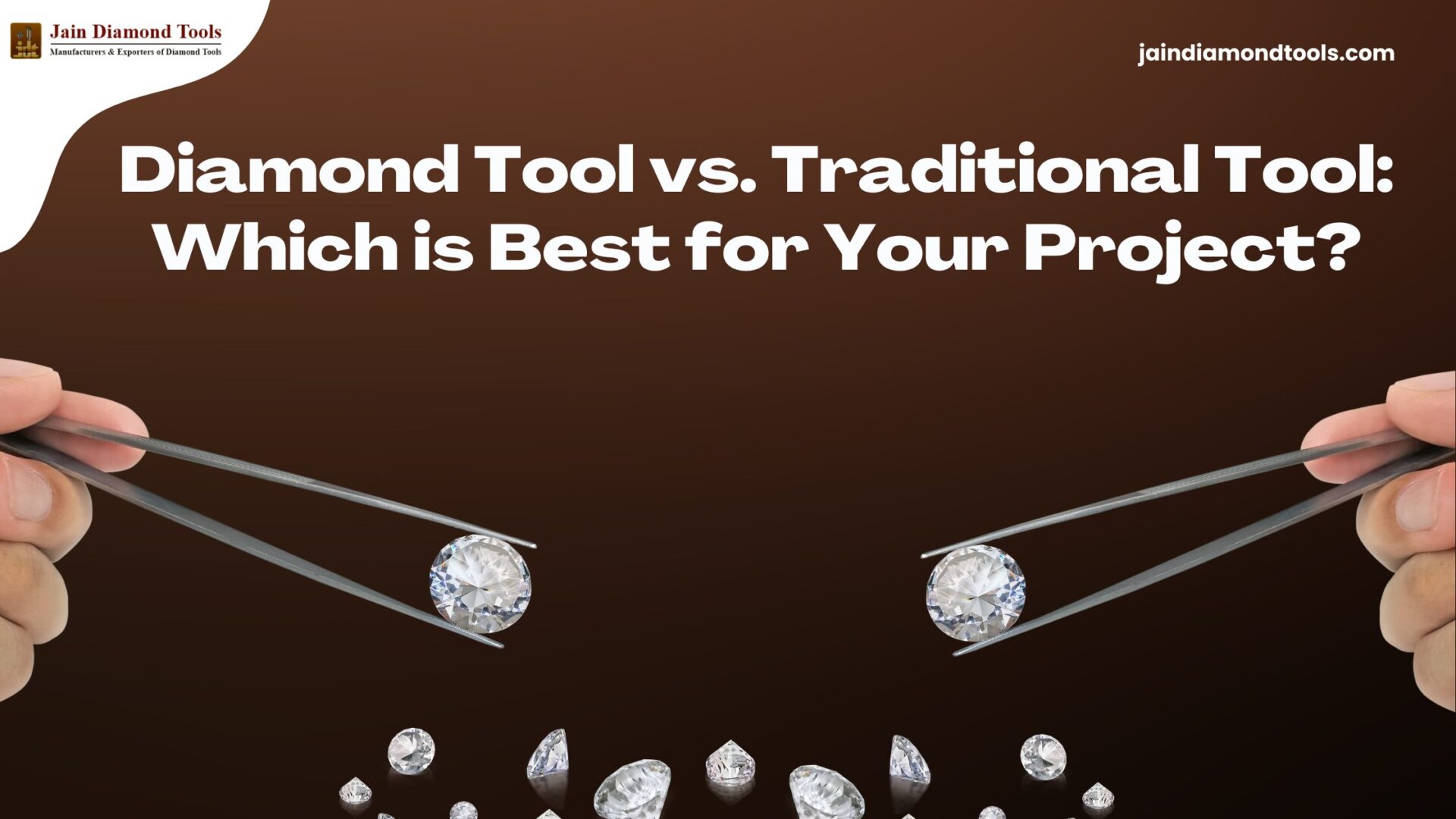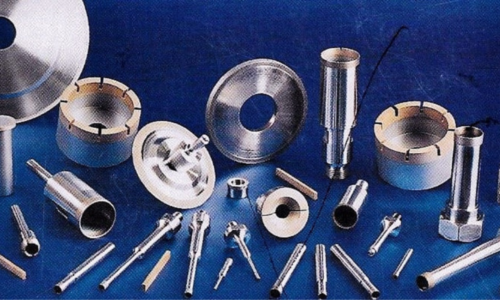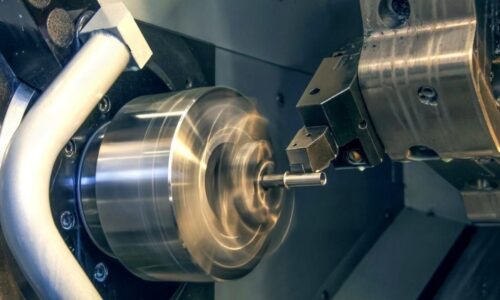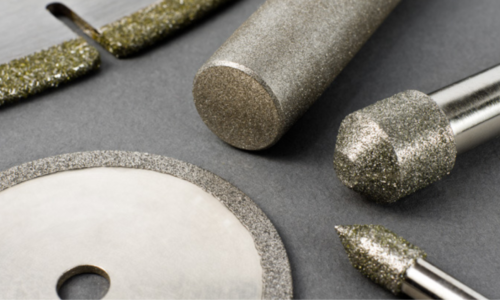
Diamond Tool vs. Traditional Tool: Which is Best for Your Project?
- By akshada
- Posted on
Successfully choosing the proper tools for a given job is very important when initiating a new project as this will determine the efficiency, accuracy, and success of the project. Lately, there has been an argument between the effectiveness of diamond tools and conventional tools in the marketplace among the professionals. In this blog, we will critically discuss the advantages and disadvantage of both making a better decision that you need to make.
Understanding Diamond Tools
Diamond tools are those tools where diamond is fitte on the working part of the tool to increase the hardness and wear resistance of the tool. Established as Jain Diamond Tools, the company deals majorly in manufacturing industrial diamond tools cutting, grinding, and drilling solutions offered by the company.
The Composition of Diamond Tools
Diamond tools comprises of a tool steel shank and a working face or the actual cutting edge which is the diamond. The diamonds can be natural [authentic] ones or non-natural [simulated/synthetic] ones as the latter is usually produce more often commonly because of their uniformity and cheaper price range. The diamonds are set in a matrix, that is the body of the specific piece, and this matrix can be metallic, resin or any other material depending on what the specific application of the piece is to be.
Applications of Diamond Tools
The industrial diamond tools are suitable in construction, manufacturing, electronics, aerospace industries among others. They are particularly effective for
- Cutting and Sawing: Employed in cutting applications where the cutting material is very rigid such as concrete, stones, and asphalt.
- Grinding and Polishing: Especially useful for giving very smooth finishes to surfaces such as granite and glass.
- Drilling: Applicable in directional drilling and mining with the aim of developing a passage through the hard rock masses.
- Machining: near net shape manufacturing and being employe in the cutting, drilling and milling of hard metallic as well as composite materials .
The Advantages of Diamond Tools
- Durability and Longevity
Diamond tools are long lasting cutting wheels Characters of diamond tools Diamond tools are well known for their very high wear resistance. They do not respond to high temperatures and their cutting edge does not diminish even after years of use and that is why they are use in industrial applications. - Precision and Accuracy:
Sophisticated goals such as the cutting of diamonds that channel to these industries can be met since the material is hard, and that makes them easy to cut to the desire perfection. - Efficiency:
Industrial diamond tools cause higher cutting speeds as compare to conventional tools, because of which the overall project span is shorten. - Versatility:
They are very versatile tools and can be apply on all the forms of surfaces and those that are hard and abrasive such as concrete, granites and glasses. - Cost-Effective in the Long Run:
Although they are initially more expensive, possessing a diamond tool is actually cheaper in the long run because they are more durable and specific blades will not need to be replace as often.
The Drawbacks of Diamond Tools
- Cost: Regarding the cost, diamond tools are usually costlier than other tools because of the diamonds used while making them.
- Specialized Equipment: The utilization of diamond tools may need special apparatus and knowledge, which may be a disadvantage especially to the small scale operations.
- Specific Applications: To reduce costs where classificatory materials are concerned, highly effective tools like diamond tools may not be necessary because it is covered by ordinary tools.
- Initial Investment: They are rather expensive to purchase from the initiation and can pose difficulties to certain business since they are rather expensive, particularly to business with limited capital.
Understanding Traditional Tools
Depending on the material used, traditional tools include steel or carbide, and they are widely used to date in different industries. It is general use and available in many forms and sizes for various uses.
The Composition of Traditional Tools
Conventional tools come in high-speed steel (HSS), carbide or any other strong metals.States that traditional tools can be manufacture from high-speed steel, carbide, and/or other sturdy materials. These materials are select based on their hardness with a view of efficiently slicing and shaping the wide range of commodities.
Applications of Traditional Tools
Traditional tools are versatile and can be use in a wide range of applications, include
- Woodworking: Mortise and tenon joints, dovetails used in carpentry/furniture making, table saw, etc.
- Metalworking: Machining metals in manufacturing is mainly cutting, drilling, and milling metals.
- Construction: Shooting in concrete and masonry work, excising, gouging, slotting, core drilling, and cutting holes in concrete, etc.
- Home Improvement: Maintenance and repairs around the house including do it yourself projects.
The Advantages of Traditional Tools
- Affordability: Traditional tools can be purchase at cheaper rates as compared to the diamond tools and this fit the small projects and businesses better.
- Ease of Use: These are more versatile and do not necessitate extra instruments or skills as the former ones do.
- Availability: Traditional tools are easily accessible and the customer can get almost all these tools in any nearby store selling hardware.
- Versatility: Depending on the type of traditional tools used, one can work on many materials to make products.
The Drawbacks of Traditional Tools
- Wear and Tear: Conventional tools get blunt faster especially when they are use on hard or abrasive surface. This results in increase usage and therefore more replacements which are more expensive in the long run.
- Limited Precision: Although useful in many applications, conventional tools are still less sharp and accurate compared to diamond tools.
- Slower Cutting Speeds: The conventional tools which are available are usually characterize by low cutting speeds which could have a tendency of taking a longer period of time.
- Maintenance: As said earlier, traditional tools need to be sharpen and maintain to get to their best state.
Comparing Diamond Tools and Traditional Tools
Cost Considerations
- Initial Cost:
Cognitive advantage: Diamond tools are more costly than their steel counterparts at the beginning, although it is worth pointing out that the described advantage would save much more money in the long run. Conventional products in turn are bought at a cheaper price but they might have shorter life spans and will require more frequent replacement. - Maintenance Costs:
This type of tool lasts long before it will require sharpening and that will help to cut on the number of days that the tools will be out of use hence helping to cut the number of operational costs. Manual instruments are usually blunt and need to be hone and replaced frequently therefore compounding maintenance costs.
Performance and Efficiency
- Cutting Speed:
Diamond tools perform the cutting more efficiently and this reduces the amount of time when undertaking large tasks. Traditional tools are also less efficient and they may also elongate the duration of the project. - Precision:
For very accurate work, diamond tools are the best because they are hard and also sharp. Conventional instruments can be highly imprecise on harder materials.
Versatility and Applications
- Material Suitability:
Diamond tools are best suit for hard and abrasive materials while the normal tools are more suitable for the softer ones. - Project Scale:
Industrial diamond tools are used widely in large scale industrial projects because they are hard wearing and fast cutting. This implies that smaller projects could find the traditional tools more appropriate and economical to use.
Choosing the Right Tool for Your Project
Diamond tools and traditional tools have their own distinct uses and it depends on the project that you have in mind. Here are some considerations to help you decide:
- Project Scale: While the regular carbide tipped tools can be use in large scale industrial projects for normal finishing needs, for projects that needed higher accuracy and lasting finish, industrial diamond tools have to be use.
- Budget: If cost is a major consideration, maybe conventional tools would be more effective particularly for comparatively limited projects.
- Material: Actually for cutting of hard or abrasive type of materials diamond tools are more efficient and long lasting.
- Expertise: In pursuing this you have to factor in your level of experience and the tools at your disposal. In case you don’t have professional table layouts then brass items can be more effective using conventional tools.
Case Studies: Real-World Applications
Case Study 1: Construction Industry
A construction company, constructing a large infrastructural building had to undertake reinforced concrete cutting. Diamond tools were prefer because of their edge in effectively cutting hard materials. Therefore, thanks to a decrease in the time of executing the_project and the costs, it was prove that industrial diamond tools are efficient in heavy stress situations.
Case Study 2: Manufacturing Industry
A precision manufacturing firm presented his and her needs as; He wanted tools to machine hard metals. They selected diamond tools because of their accuracy and durability of the used material. Gem Vision regards investment in diamond tools as the right strategy because the benefits such as better product quality and the reduction of the frequency of tool replacements are sustainable in the long-run.
Case Study 3: DIY Enthusiasts
There are a lot of people who do home improvement and who opted for traditional tools because these were cheaper and readily available. In regard to the usage, the tools proved effective but later the respondents noted that for effective performance they needed to sharpen the tools quite often and replace them, which was a usual characteristic of traditional tools.
Conclusion
Diamond tools use the idea of trade off while the traditional tools have their own features and uses. Jain Diamond Tools is a professionally manage company and being a manufacturer of diamond tool, it caters to the requirements of different industry with quality industrial diamond tools. Thus, assessing the advantages and disadvantages of the mentioned types of tools, you will be able to choose the right approach for your project.
To know more about our line of diamond tools and how you could beneficiate from them on your next construction site, come to Jain Diamond Tools.
FAQs
1. What are the main benefits of using diamond tools over traditional tools?
Ans- This due to the fact that Diamond tools are; durable, precise, efficient in cutting hard and abrasive materials. Besides, they have a longer life span, and hence they do not need to be replace often.
2. Are diamond tools cost-effective for small-scale projects?
Ans- As a result, while the use of diamond tools involves higher initial costs, they are able to provide more service for the same money compared to less expensive tools, and because working with hard materials require intensive energy, the tool’s cost is recoverable even during a small operation.
3. Can traditional tools be used on hard materials?
Ans- Conventional tools are effective on to hard materials though they often get worn out frequently and one is need to replace them often. For high degrees of durability and efficiency it is recommend to use types of diamond tools.
4. What industries benefit the most from diamond tools?
Ans-Construction industry, manufacturing industries, electronics industries and aerospace industries are the ones who make higher usage of industrial diamond tools because these industries require maximum cutting of hard material and industrial diamond tools are more precise, longer lasting and more efficient in their usage.
5. How do I choose the right diamond tool for my project?
Ans- Some of the factors to consider are; the type of material that is available, the scope of the project and your pocket. Therefore for the right advice on which diamond tools to use, it is important to contact the Jain Diamond Tools which is a reputable manufacturer of the diamond tools.





